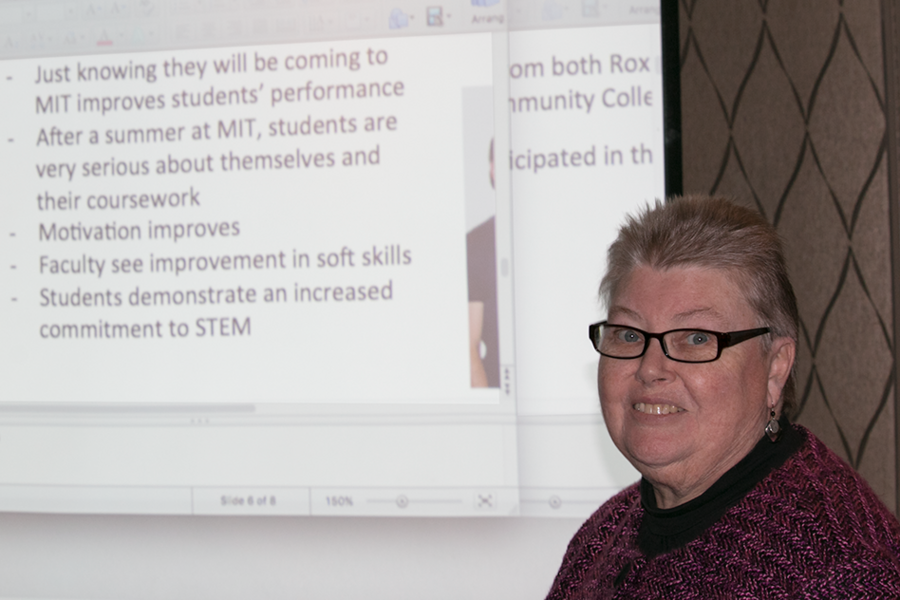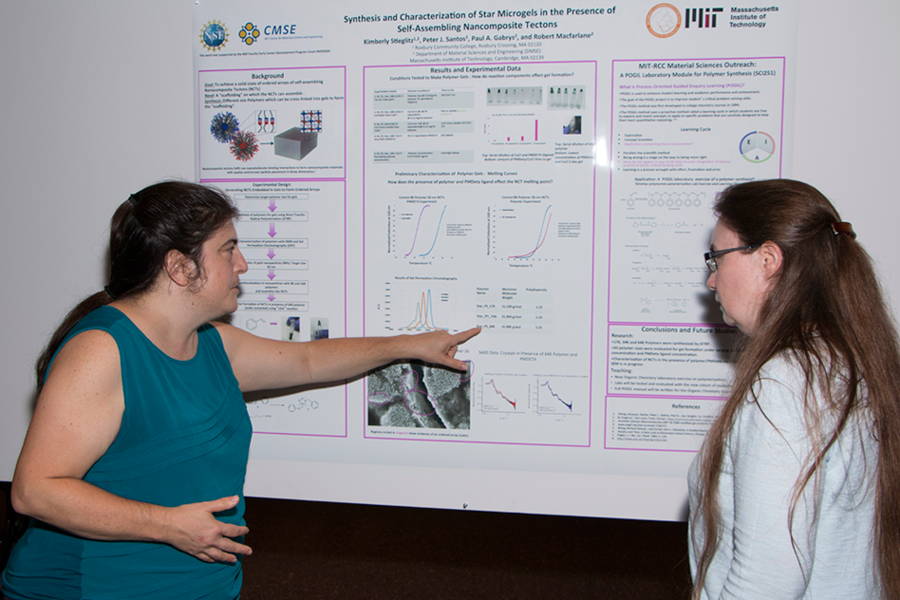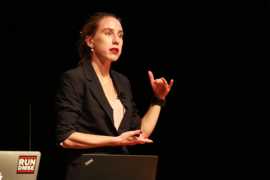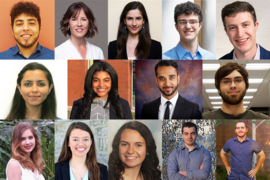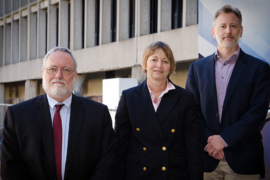A summer of research at MIT gives Boston community college students a pathway toward greater self-confidence, better academic skills, and a four-year college degree, MIT Materials Research Laboratory Education Officer Susan Rosevear said during a symposium at the Materials Research Society (MRS) Fall meeting in Boston.
“Many of them have barely heard about materials science when they come to MIT, and by the end of the summer, they get sort of a full dunk into the world of materials science, so they are better informed to go forward,” Rosevear says. Over the past dozen years, 63 students from Roxbury and Bunker Hill community colleges have participated in the program at MIT. Of these, 45 went on to earn a four-year degree, with 34 pursuing degrees in science or engineering. Five continued on to graduate school in science or medicine.
The Research Experience for Undergraduates (REU) program is primarily funded through the MIT Materials Research Laboratory’s National Science Foundation-funded Materials Research Science and Engineering Center (NSF-MRSEC). Bringing in underrepresented or nontraditional students from the community colleges broadens the diversity of students in the REU program.
“We are trying, and I think succeeding, in providing opportunities to community college students that they don’t have at their home institutions,” Rosevear says. Students learn to use electron microscopes, X-ray diffraction spectrometers, and other advanced materials science characterization tools. Rosevear addressed a Nov. 27 session at MRS highlighting collaborations between community colleges and four-year colleges.
In 2005, the MIT MRSEC, then part of the Center for Materials Science and Engineering, began the partnership with Roxbury Community College with seven students participating during its first year. In recent years, the summer program expanded to include community college professors in materials research on campus led by MIT faculty. So far, nine community college professors have participated. CMSE merged in October 2017 with the Materials Processing Center to form the MIT Materials Research Laboratory.
During the fall 2017 semester, Roxbury Community College Chemistry and Biotechnology Professor Kimberly Stieglitz offered a new course at Roxbury Community College, Research Science, (SCI 281) that brought students to the X-ray diffraction facility at MIT to examine their lab samples. “We keep finding new ways to leverage this partnership,” Rosevear says. Stieglitz and other teachers who have participated in the summer teachers’ program at MIT, also have incorporated material from their summer research into their classroom teaching, Rosevear notes.
Students must complete a basic engineering or science course, such as chemistry or biology, to be accepted into the MIT summer program. Community college teachers select the students based on academic record, statements of interest, and faculty letters of recommendation. “They’ve been great partners for us, which is really key to the whole thing,” Rosevear explains. “Kimberly [Stieglitz] has told me, once they are selected, just knowing they are going to MIT changes their performance, they become more serious about themselves, their performance, motivation increases, and they have an increased commitment to STEM,” Rosevear says.
Over the course of the summer, community college students attend weekly luncheon meetings covering topics such as crafting a high-quality poster presentation, applying to graduate school, understanding patents and trademarks, and pursuing careers in materials science and other engineering fields.
Interest among MIT faculty in hosting community college students continues to grow. “I have people coming to me and saying, how do I get one of these students? The students have sold themselves, is essentially what’s happened,” Rosevear says.
The community college program is distinct from the MIT MRL Summer Scholars program, which is open to undergraduates in science and engineering from across the U.S. and Puerto Rico who are citizens or legal residents. Applications for summer 2018 must be submitted by Feb. 16, 2018.
